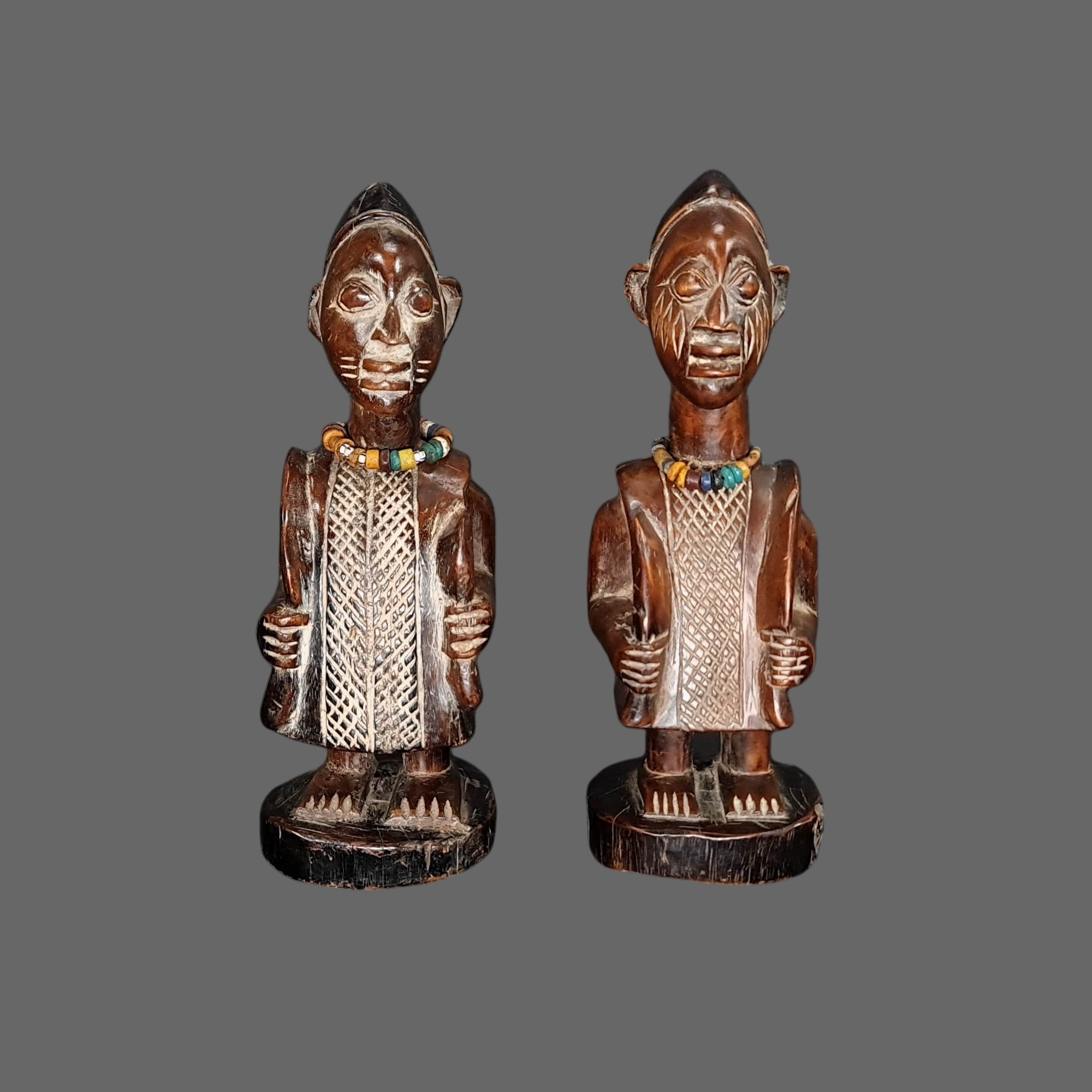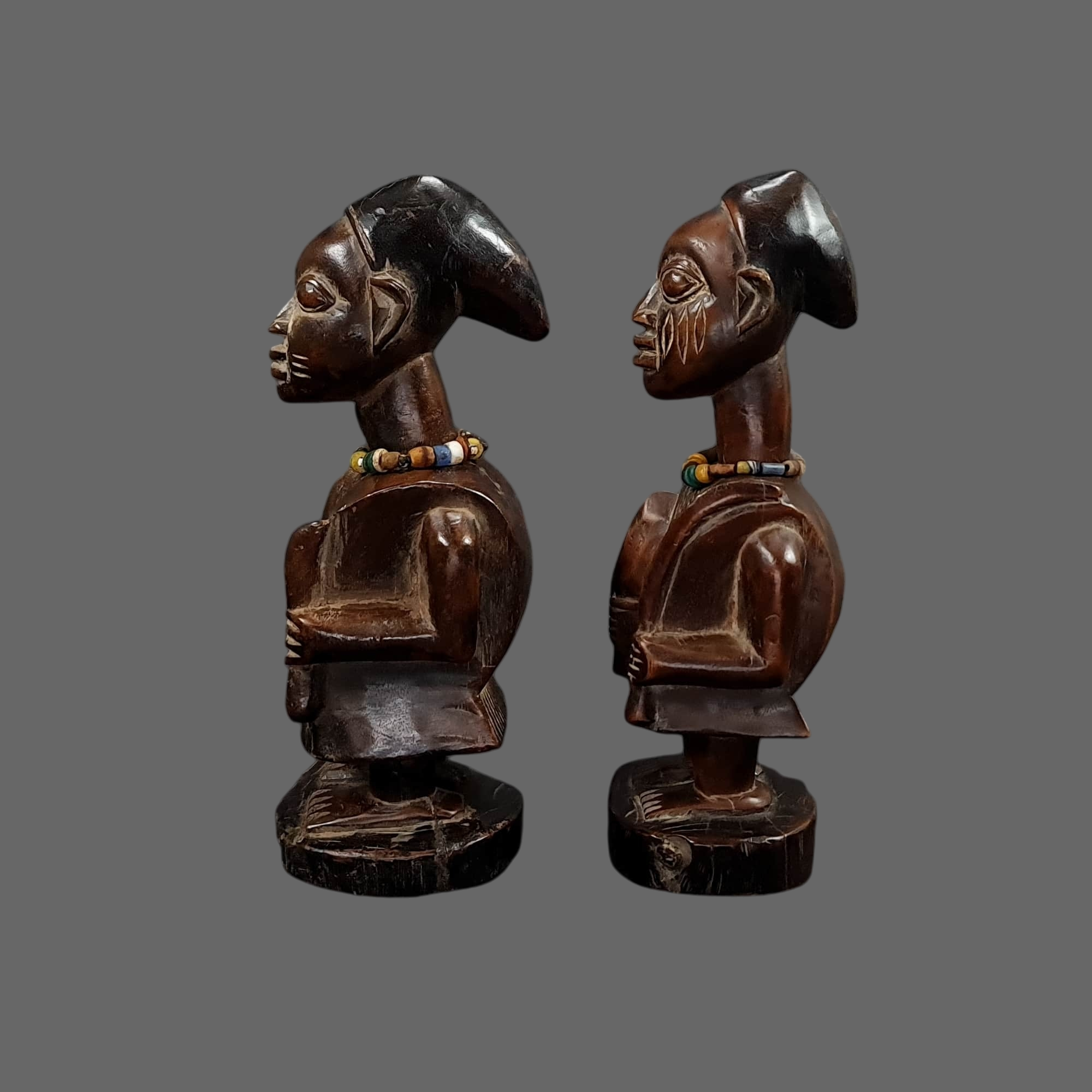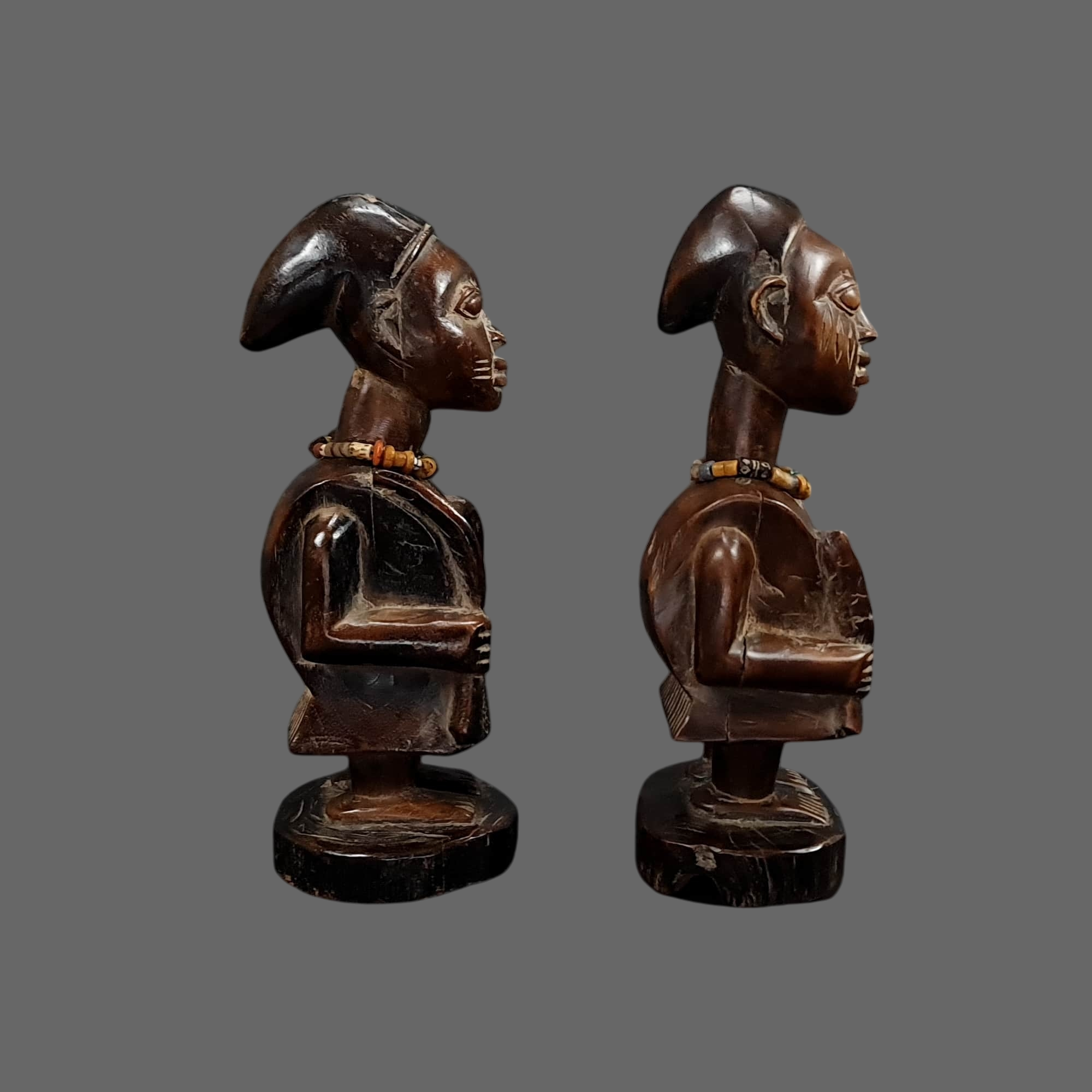Dimensions and Weight:
- Weight: 0.512 kg / 0.490 kg
- Height: 29.5 cm
- Width: 9.5 cm
- Depth: 11 cm
Representations of Ibeji twins, an important tradition of the Yoruba ethnic group in Nigeria. Ibeji, which literally means "twins" in Yoruba, plays a crucial role in the culture and spiritual beliefs of the Yoruba people.
Characteristics and Significance
Materials and Construction: Ibeji figurines are typically carved from hardwood and often adorned with beads, shells, and sometimes fabric clothing. These particular ones show bead ornaments around the neck, which is typical of these sculptures.
Function and Use: Ibeji are created to honor deceased twins. The Yoruba have one of the highest rates of twin births in the world, and they believe that twins possess special powers. When a twin dies, a figurine is made to house the spirit of the deceased. This figurine is cared for and fed as if it were a living child, ensuring that the spirit of the twin remains among the living and brings protection and prosperity.
Aesthetics and Symbolism: Ibeji figurines are often carved with distinctive features, such as facial scarifications, elaborate hairstyles, and formal postures. Wide-open eyes and stylized features are typical of Yoruba art.
Cultural Role: Ibeji are not only religious objects but also witnesses to the rich artistic tradition of the Yoruba. They reflect the importance placed on family and the continuity of family relationships, even after death.
Historical Context
The Ibeji tradition dates back several centuries and remains a living practice among the Yoruba. These figurines have also become sought-after collector’s items, not only for their cultural significance but also for their aesthetic appeal.
Conservation and Heritage
Today, Ibeji figurines are present in many museums and private collections around the world. They are recognized not only as religious artifacts but also as works of art that capture the spirituality and creativity of Yoruba culture.
300.00 €



